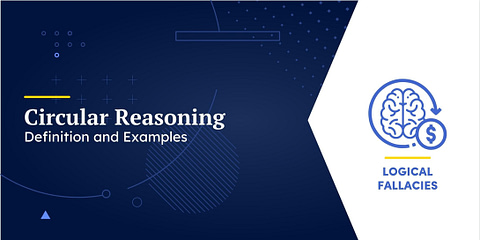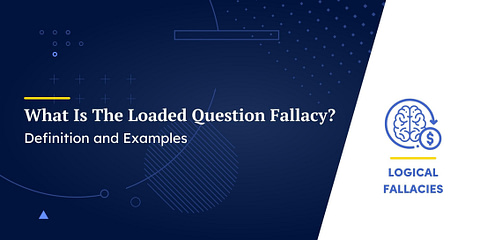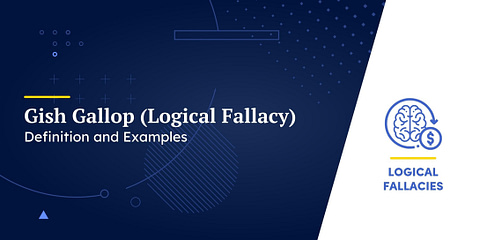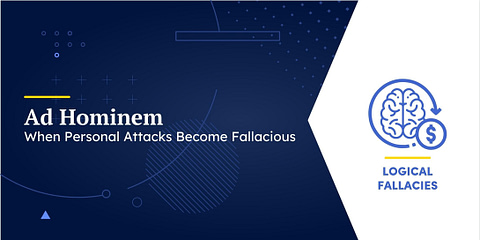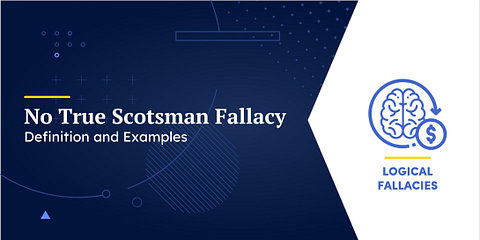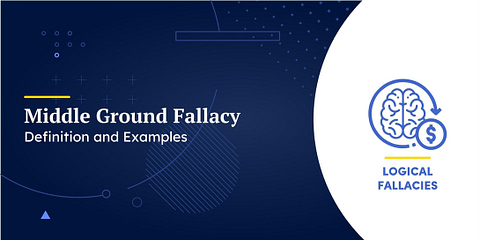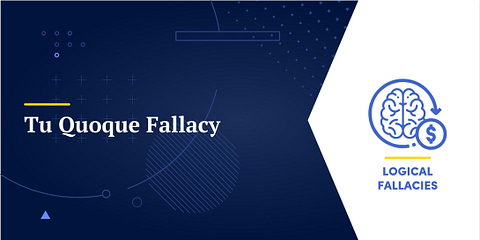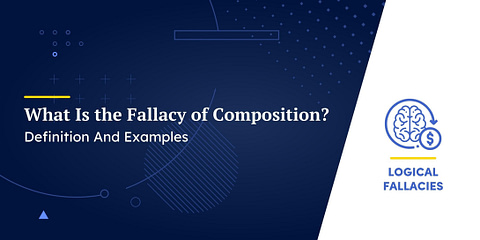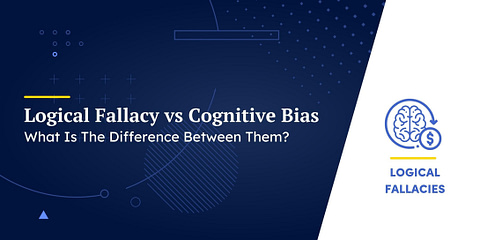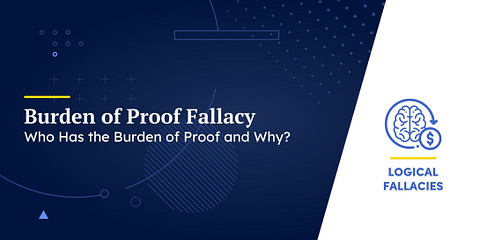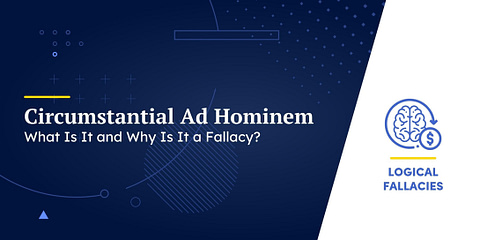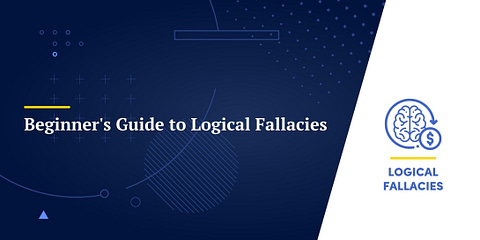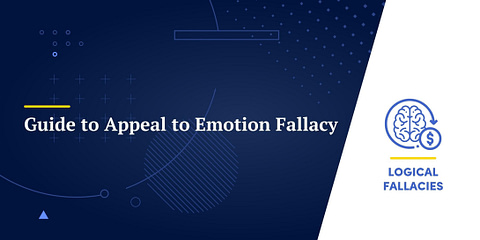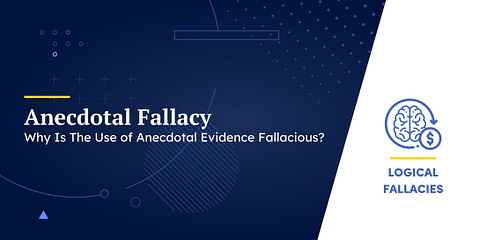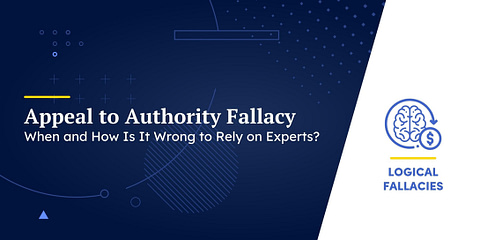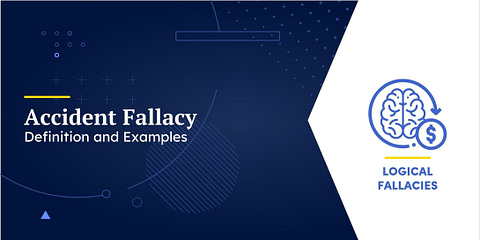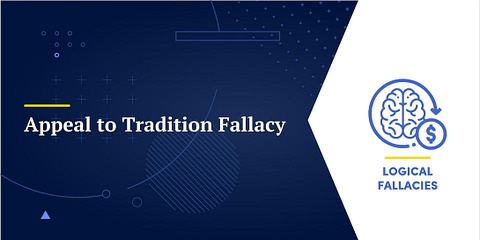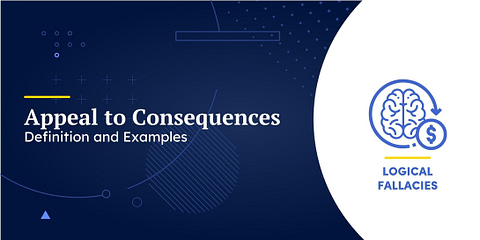Appeal to ignorance is a logical fallacy in which someone argues either for or against something because there is no contradicting evidence. In other words, it’s based on the mistaken assumption that a lack of evidence is evidence.
It is also known as argumentum ad ignorantiam (Latin for “argument from ignorance”) and is a type of informal fallacy.
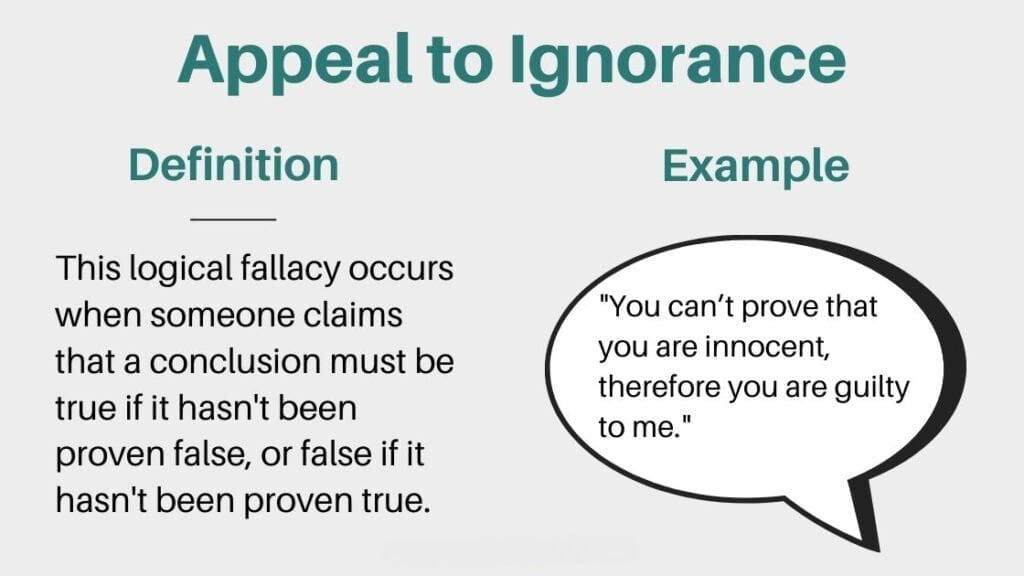
Definition
✍️ As mentioned above, one falls victim to this fallacious line of reasoning when they assert that a claim must be true if it hasn’t been proven false or false if it hasn’t been proven true.
Ignorance, or the lack of opposing evidence, is the main premise for the argument, hence the name “appeal to ignorance”.
There are two logical forms for this argument, depending on if the argument is affirmative or negative. The affirmative claim asserts that a particular conclusion must be true since there is no evidence against it, and a negative one declares a conclusion false due to the same reason.
👍 Affirmative form:
- There is no evidence against X.
- Therefore, X is true.
👎 Negative form:
- There is no evidence to support Y.
- Therefore, Y is false.
The reality is that appealing to ignorance doesn’t provide any real evidence — it only points out that we do not know something. If this type of argument was valid, it could be used to support two opposing arguments, which is a clue that it is based on flawed reasoning.
👻 For Example
“You cannot prove that ghosts don’t exist, therefore they must exist”, or “You cannot prove that ghosts exist, therefore they don’t exist.”
Furthermore, this fallacy frequently appears together with the burden of proof: the person appealing to ignorance erroneously assumes that their opponent has the obligation to justify the opposing claim.
Examples
👉 Here are several examples to illustrate it further:
- “You cannot prove that God does not exist; therefore, God exists.”
- “If someone is guilty, they always try to deny their guilt. This man has never said that he is not guilty, and therefore he must be innocent.”
- “No one has ever proven that UFOs haven’t visited Earth yet, so I believe that they have.”
- “You can’t prove that you are innocent, therefore you are guilty to me.”
One good example was given by Carl Sagan, a famous American astronomer, in his book The Demon-Haunted World: Science as a Candle in the Dark:
The claim that whatever has not been proven false must be true, and vice versa. (e.g., There is no compelling evidence that UFOs are not visiting the Earth; therefore, UFOs exist, and there is intelligent life elsewhere in the Universe. Or: There may be seventy kazillion other worlds, but not one is known to have the moral advancement of the Earth, so we’re still central to the Universe.) This impatience with ambiguity can be criticized in the phrase: absence of evidence is not evidence of absence.
